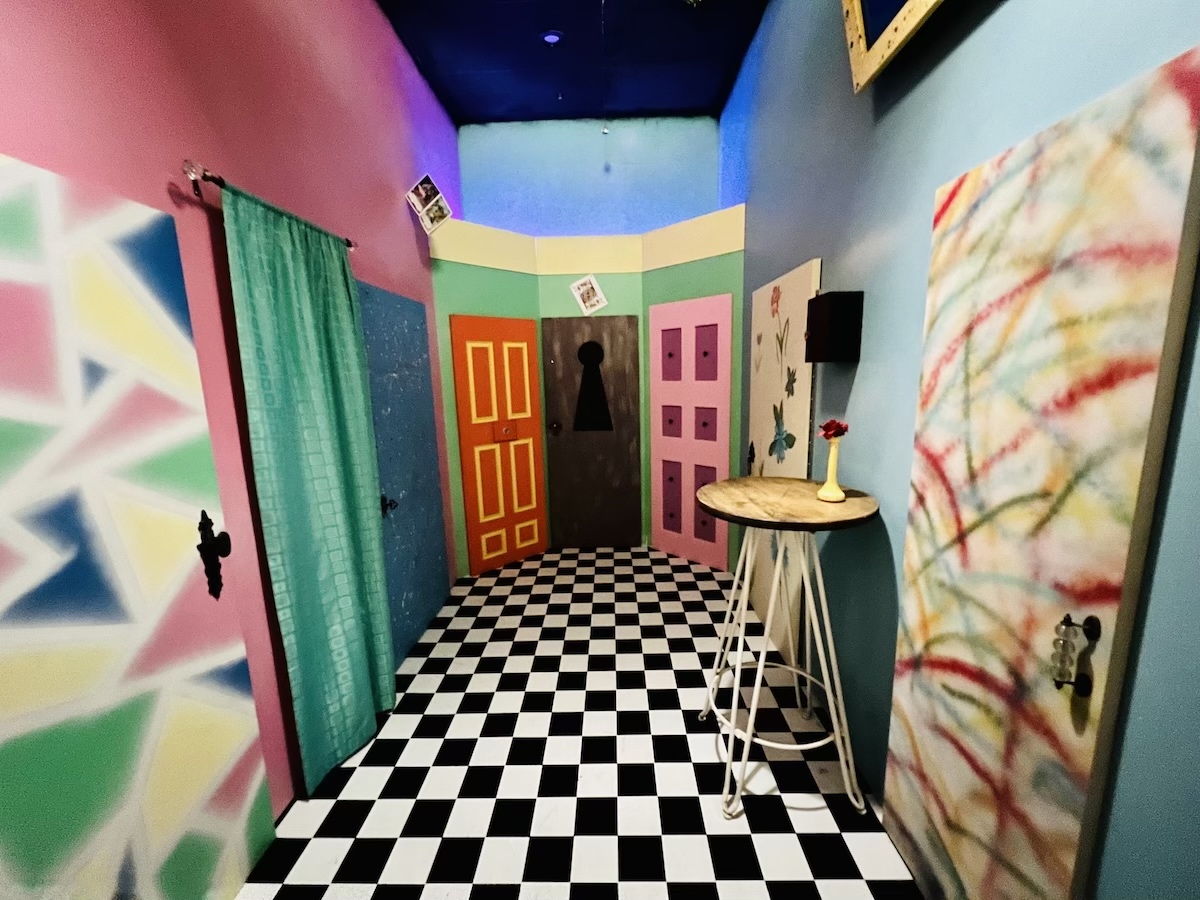Fun and Challenging Escape Room-- Strategy Your Following Journey
Fun and Challenging Escape Room-- Strategy Your Following Journey
Blog Article
Group Strategies: Exactly How to Work together Efficiently in a Getaway Area
Teams need to actively pay attention to each member's insights, assign duties that align with specific toughness, and preserve regular check-ins to ensure focus and protect against redundancy. By promoting an atmosphere that values communication and adaptability, groups can substantially increase their performance and success rates.
Establish Clear Communication

To facilitate clear interaction, it is vital to assign a main point of call for information dissemination. This duty includes summing up findings and recommended approaches to make certain every person continues to be on the exact same page. In addition, embracing a systematic method to discussions can protect against chaotic exchanges. For example, brief, focused updates from each staff member can maintain the group notified without frustrating them with details.
Appoint Functions Tactically
While clear interaction sets the foundation for reliable synergy, assigning duties tactically guarantees that each employee's staminas are utilized properly. In a retreat room scenario, the time-sensitive and intricate nature of obstacles requires an efficient technique to task delegation. By determining and leveraging individual proficiencies, teams can optimize their problem-solving capacities and enhance total performance.
First, evaluate the unique skills and attributes of each individual. For instance, a person with an eager eye for detail may excel in finding concealed objects, while a rational thinker can be much better matched to resolving problems - best escape room. It's similarly essential to have a leader who can look after progress, manage the timeline, and make decisive phone calls when needed. This function commonly requires strong organizational and interpersonal skills.
Second, make sure that roles are versatile and adaptable. As brand-new obstacles arise, the group has to have the ability to pivot, reapportioning jobs as called for. This flexibility aids keep energy and protects against traffic jams that might happen because of stiff role projects.
Ultimately, a tactical method to role assignment not just takes full advantage of the staminas of each staff member but also promotes a natural setting, driving the group in the direction of an effective retreat.
Use Diverse Skills
Identifying and taking advantage of the diverse abilities within your group official source can substantially elevate your efficiency in an escape area. Each employee brings special toughness to the table, and efficiently leveraging these capabilities can quicken analytical and improve overall effectiveness. A group member with solid analytical skills may excel at decoding complex codes or patterns, while one more with keen observational capabilities might quickly detect surprise clues that others may neglect.
Urge team participants to articulate their understandings and concepts quickly, making certain that all potential solutions are taken into consideration. Additionally, assigning tasks that align with each member's toughness can protect against traffic jams and make certain that progression is continuous.
Additionally, variety in skills usually equates to variety in believing styles, which is important in an escape space setting. While some difficulties may require rational reasoning and precision, others could gain from creative and association of ideas. By identifying and leveraging this variety, teams can attend to a wider variety of challenges a lot more properly, therefore boosting their possibilities of a successful getaway.
Manage Time Efficiently

Determine noticeable problems and split tasks based on team participants' strengths, ensuring that no one is still. This method can help keep the team concentrated and stop time from sliding away undetected.
In addition, prevent tunnel vision. If a problem is taking as well long, revolve employee or proceed to useful content another challenge, returning later on with fresh point of views. Communication is paramount-- keep every person upgraded on addressed puzzles and staying tasks to avoid repetitive efforts.
Last but not least, utilize any tips or clues moderately but purposefully - best escape room. Understanding when to request for assistance can conserve valuable time. By adhering to these time monitoring principles, groups can considerably boost their opportunities of a web successful and delightful escape area experience
Debrief and Mirror
Representation is a necessary aspect of team growth and renovation in the context of getaway areas. Once the difficulty is completed, whether efficiently or not, it is critical for the team to involve in an organized debriefing session. This procedure allows team participants to analyze their performance, recognize strengths, and identify locations for renovation.
Begin the debrief by reviewing what went well. Highlight certain circumstances of effective interaction, analytic, and cooperation. Recognizing these positive habits enhances them and motivates their repeating in future obstacles.
Review minutes of confusion, miscommunication, or ineffective approaches. Urge an open and constructive dialogue where group participants can share their viewpoints without anxiety of objection.
Verdict
In final thought, successful partnership in a retreat space is predicated upon clear interaction, critical role tasks, the effective application of diverse skills, and efficient time management. By developing a cohesive and flexible group atmosphere, the chance of effectively solving puzzles and accomplishing the purpose of leaving the space is significantly boosted.
Report this page